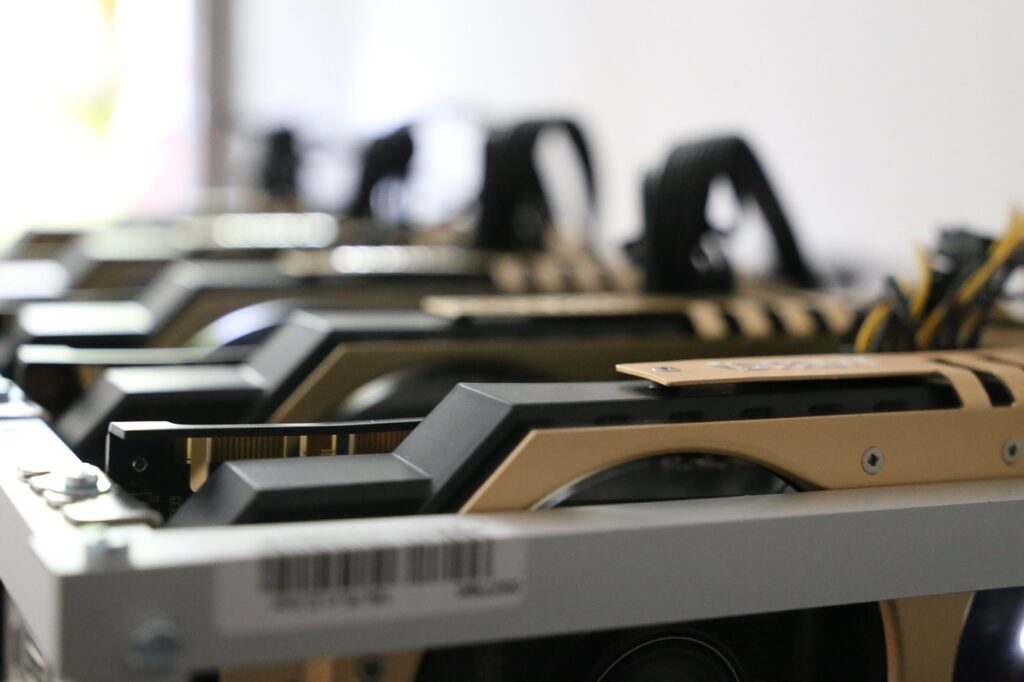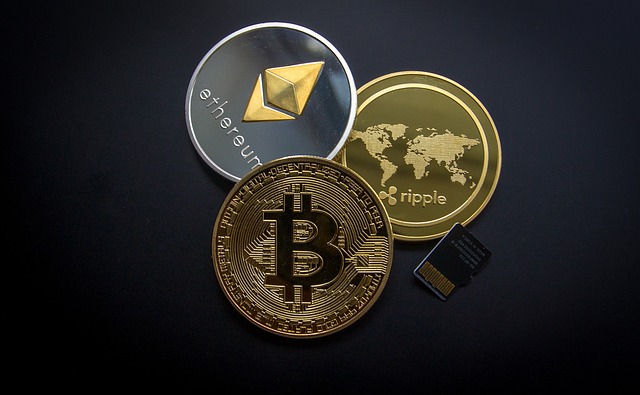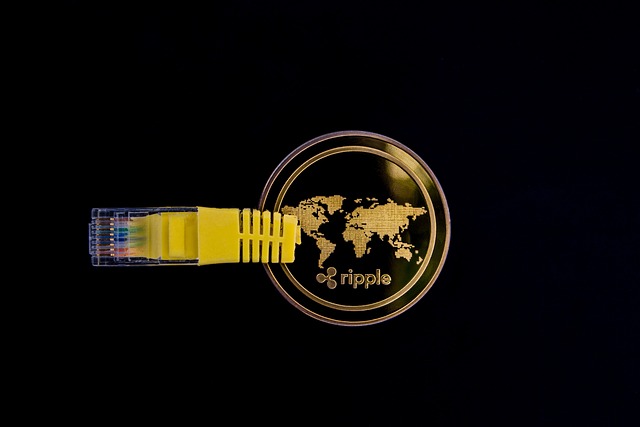The Transformative Power of DeFi: Unlocking Financial Opportunities
The Transformative Power of DeFi: Unlocking Financial Opportunities

Understanding the Potential of Decentralized Finance (DeFi)
Decentralized Finance, or DeFi, is a rapidly growing paradigm that holds immense potential in revolutionizing the way financial systems operate. Unlike traditional banking systems that rely on centralized authorities like banks and intermediaries, DeFi leverages the power of blockchain technology to enable peer-to-peer financial transactions. This decentralized approach eliminates the need for intermediaries, thus reducing costs, increasing efficiency, and fostering greater financial inclusivity.
The rise of DeFi has been fueled by the emergence of smart contracts, which are self-executing contracts with predefined conditions. These contracts are stored on blockchain networks, ensuring transparency, security, and immutability of financial transactions. By automating various processes, smart contracts remove the need for middlemen, leading to faster transaction speeds and reduced risks. This groundbreaking technology has the potential to transform multiple industries beyond finance, including supply chain management, real estate, and healthcare.
Exploring the New Frontiers of Financial Opportunities
As the world becomes more interconnected and technology continues to advance at an unprecedented rate, new doors are opening in the realm of financial opportunities.

One of the key factors driving the exploration of new financial opportunities is the rise of smart contracts. These self-executing contracts remove the need for intermediaries, making financial transactions faster, more secure, and more transparent. By utilizing blockchain technology, smart contracts enable individuals to bypass traditional systems and take advantage of the benefits of decentralization. This empowers individuals with greater control over their finances, giving them the freedom to interact directly with a vast array of financial products and services. The potential for growth and innovation in this new frontier is vast, and as more individuals and businesses embrace DeFi, the financial landscape is destined to be forever transformed.
How DeFi is Revolutionizing Traditional Banking Systems
Traditional banking systems have long been the primary means through which individuals access financial services.

One of the key aspects of DeFi that differentiates it from traditional banking is the use of smart contracts. These self-executing contracts are coded with predefined rules and conditions, eliminating the need for intermediaries like banks. As a result, financial transactions can be executed seamlessly and transparently, without the usual delays and high costs associated with traditional banking. This has opened up a world of possibilities, enabling individuals to take greater control of their finances and make peer-to-peer transactions effortlessly. The rise of smart contracts in DeFi has brought about a significant shift in the way financial transactions are conducted, offering a more efficient and accessible alternative to traditional banking systems.
The Rise of Smart Contracts and Their Impact on Financial Transactions
Smart contracts, a pivotal concept in decentralized finance (DeFi), have been rapidly gaining traction and transforming the landscape of financial transactions. These innovative pieces of code are executed automatically when predetermined conditions are met, removing the need for middlemen and costly intermediaries. By leveraging blockchain technology, smart contracts provide a transparent and efficient framework for executing and enforcing agreements, revolutionizing traditional banking systems.
One of the major impacts of smart contracts on financial transactions is the elimination of trust issues. In traditional banking, individuals rely on intermediaries such as banks and lawyers to facilitate transactions and ensure compliance. However, smart contracts remove the need for trust as the terms and conditions of the agreement are embedded within the code and automatically executed when the conditions are met. This eliminates the risk of fraud or manipulation, as the contract itself becomes the ultimate authority. Consequently, the reliance on intermediaries decreases, leading to faster, more secure, and cost-effective financial transactions.
Unleashing the Power of Blockchain Technology in DeFi
Blockchain technology has emerged as a game-changer in the world of decentralized finance (DeFi). By leveraging this innovative technology, DeFi platforms are able to provide users with secure, transparent, and efficient financial transactions. Blockchain’s distributed ledger system enables the recording and verification of transactions in a decentralized manner, eliminating the need for intermediaries like banks and financial institutions. This not only reduces costs but also increases the speed and accessibility of financial services. Furthermore, blockchain’s immutability ensures that transactions cannot be tampered with, adding an extra layer of security to the DeFi ecosystem.
Not only does blockchain technology enhance the security and efficiency of financial transactions, but it also enables the development of smart contracts. Smart contracts are self-executing contracts with the terms of the agreement directly written into code. These contracts automatically execute when predetermined conditions are met, removing the need for intermediaries and ensuring trust and transparency between counterparties. Smart contracts have the potential to completely revolutionize financial transactions by streamlining processes and reducing the risk of fraud. Overall, by unleashing the power of blockchain technology in DeFi, we can expect to witness significant transformations in the financial sector, empowering individuals with greater control over their finances.
The Benefits of Decentralization in the Financial Sector
Decentralization is a buzzword that has been gaining momentum in the financial sector lately, and for good reason. One of the undeniable benefits is the increased accessibility it brings. Unlike traditional banking systems, which often require individuals to go through rigorous processes and bureaucratic red tape, decentralized finance (DeFi) opens up opportunities for anyone with an internet connection. This means that individuals who have previously been excluded from the financial system now have the chance to participate and access financial services that were previously unavailable to them. Whether it’s saving, investing, or accessing loans, the decentralized nature of DeFi levels the playing field and empowers individuals to take control of their own financial well-being.
Another advantage of decentralization in finance is the enhanced security it offers. Traditional financial institutions are prone to hacking and data breaches, leaving sensitive information at risk. With DeFi, transactions are conducted directly between peers, eliminating the need for intermediaries and thereby reducing the vulnerabilities associated with centralized systems. Additionally, the use of blockchain technology ensures that transactions are recorded and verified in a transparent and immutable manner, making it nearly impossible for fraudulent activities to occur unnoticed. This heightened level of security not only protects individuals’ financial assets but also helps build trust in the DeFi space, making it a more reliable and attractive option for individuals seeking a secure and stable financial system.
Overcoming the Limitations of Traditional Financial Services with DeFi
DeFi, short for Decentralized Finance, has emerged as a formidable force in overcoming the limitations of traditional financial services. Traditional finance is often associated with centralized institutions, such as banks, that exert control over individuals’ financial transactions. This centralized nature introduces several restrictions, including high transaction fees, lengthy processing times, and limited access for the unbanked population.
However, DeFi aims to reshape the financial landscape by providing decentralized alternatives that are accessible to anyone with an internet connection. One of the key ways DeFi is overcoming these limitations is through the use of blockchain technology and smart contracts. These innovative technologies enable peer-to-peer transactions that eliminate the need for intermediaries, resulting in faster and more cost-effective financial services.
Additionally, DeFi platforms offer a range of financial opportunities that were previously inaccessible to many individuals. Through decentralized lending and borrowing protocols, anyone can become a lender or borrower, without the need for credit checks or meeting stringent requirements imposed by traditional financial institutions. This opens up a world of possibilities for individuals who were excluded from the traditional banking system, allowing them to access financial services and participate in economic growth.
Empowering Individuals with Greater Control over Their Finances
In the world of decentralized finance (DeFi), individuals are being empowered with greater control over their finances like never before. Traditional banking systems have long been known for their centralized structure, where customers had limited say and control over their financial assets. However, with the rise of DeFi, individuals are now able to take charge and make decisions regarding their money in a decentralized manner.
One of the key ways DeFi is empowering individuals is through the use of smart contracts. These self-executing contracts are built on blockchain technology and allow for automatic, transparent, and secure financial transactions. By utilizing smart contracts, individuals can engage in various financial activities, such as lending, borrowing, or investing, without the need for intermediaries or third parties. This not only eliminates the need for trust in centralized institutions but also reduces associated fees and delays. As a result, individuals have the freedom to manage their finances more independently and efficiently.
• Smart contracts in DeFi allow for automatic, transparent, and secure financial transactions.
• Individuals can engage in lending, borrowing, or investing without intermediaries or third parties.
• Eliminates the need for trust in centralized institutions.
• Reduces associated fees and delays.
• Provides individuals with the freedom to manage their finances independently and efficiently.
Navigating the Risks and Challenges of DeFi Investments
Investing in decentralized finance (DeFi) comes with its fair share of risks and challenges. One of the primary risks involves the security of the DeFi platforms themselves. Since most of these platforms are built on blockchain technology, they are susceptible to hacking attempts and smart contract vulnerabilities. This means that investors need to exercise caution and thoroughly research the platforms they choose to invest in.
Another challenge in DeFi investments is the volatility of cryptocurrency markets. Cryptocurrencies, which are the primary assets in DeFi, are known for their unpredictable price fluctuations. This can lead to significant gains for investors, but it also poses the risk of substantial losses. It is crucial for investors to have a clear understanding of the market dynamics and be prepared for the potential risks involved when investing in DeFi.
The Future of DeFi: Predictions and Possibilities
As decentralized finance (DeFi) continues to gain traction and evolve, the future holds immense potential for this groundbreaking technology. Experts predict that DeFi will revolutionize the traditional financial landscape, creating new possibilities and opportunities for individuals across the globe. With the rise of smart contracts and the power of blockchain technology, DeFi has the potential to transform financial transactions in unprecedented ways.
One of the key predictions for the future of DeFi is the democratization of financial services. Traditional banking systems have long been criticized for their exclusivity and lack of accessibility. However, with DeFi, individuals from all walks of life can have greater control over their finances, regardless of their geographic location or socioeconomic status. This shift towards decentralization empowers individuals with the ability to access financial services, make investments, and participate in a global marketplace, leveling the playing field and opening doors to new opportunities.
What is DeFi?
DeFi, short for decentralized finance, refers to a system of financial applications built on blockchain technology that aims to remove intermediaries and give individuals more control over their financial transactions.
How does DeFi revolutionize traditional banking systems?
DeFi eliminates the need for traditional intermediaries like banks, allowing for direct peer-to-peer transactions. It also enables access to financial services for the unbanked population and offers more inclusive and efficient financial solutions.
What are smart contracts and how do they impact financial transactions?
Smart contracts are self-executing contracts with the terms of the agreement directly written into code. They automate and enforce transactions, eliminating the need for intermediaries and increasing trust and security in financial transactions.
How does blockchain technology empower DeFi?
Blockchain technology provides a transparent and immutable ledger, ensuring the security and integrity of financial transactions. It also enables interoperability between different DeFi platforms, enhancing efficiency and expanding the possibilities for innovation.
What are the benefits of decentralization in the financial sector?
Decentralization in DeFi eliminates single points of failure, reduces the risk of censorship, and increases accessibility. It also promotes financial inclusion, reduces transaction costs, and empowers individuals to have greater control over their financial activities.
Can DeFi overcome the limitations of traditional financial services?
Yes, DeFi has the potential to overcome limitations such as high fees, slow processing times, lack of transparency, and exclusivity.

How does DeFi empower individuals with greater control over their finances?
DeFi allows individuals to manage their finances without relying on intermediaries, giving them direct control over their assets and transactions. It also enables the creation of decentralized applications that offer financial services tailored to individuals’ specific needs.
What risks and challenges should be considered when investing in DeFi?
Some risks and challenges of DeFi include smart contract vulnerabilities, regulatory uncertainties, market volatility, and potential for hacking or scams. It is important to conduct thorough research, diversify investments, and be cautious when navigating the DeFi space.
What are the predictions and possibilities for the future of DeFi?
The future of DeFi holds immense possibilities, including increased adoption and integration with traditional finance, the emergence of innovative financial products and services, and the potential to bridge the gap between developed and underdeveloped economies. However, challenges related to scalability, security, and regulatory frameworks need to be addressed to fully unlock the potential of DeFi.
Todays Featured Product:
Buy, exchange and grow your crypto securely with a Ledger hardware wallet, combined with the Ledger Live app. It’s never been easier to keep your crypto safe and accessible. Buy direct from Ledger.com and get todays Special Offers Here.




